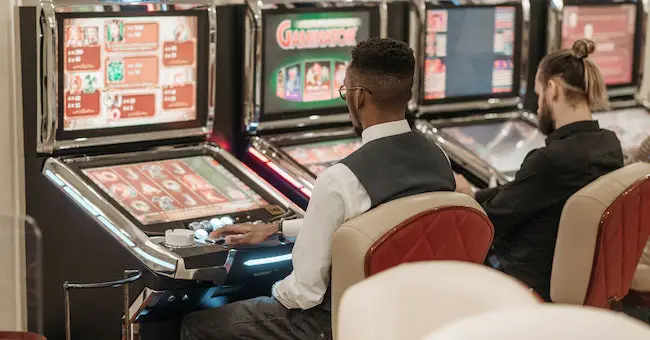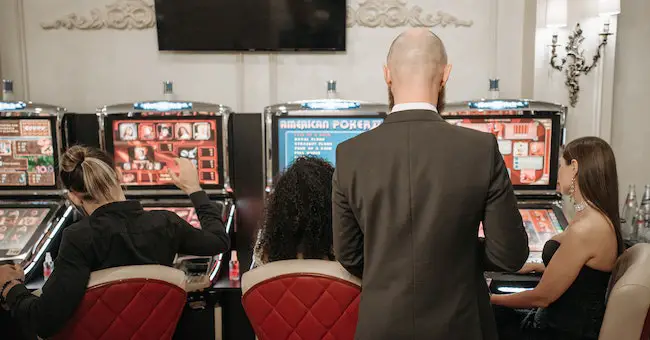How Often Do Slot Machines Payout?
The 1:1 payout occurs every 8 minutes. The 5:1 payout occurs every 33 plays, while the 2:1 payout happens every 600 minutes. The majority of players believe that the probability increases with the payout.
The frequency of that slot machine’s payout depends on various variables, including the machine’s program and the rules in place. Slot machines are designed to function using a principle known as “random number generation,” which guarantees that the outcome of each spin is random and independent of prior spins. This is because there isn’t a set pattern or time frame that slot machines have to pay out.
There is, however, the term “return to player” (RTP), which is the proportion of bets the machine has been designed to return to players over the long term. RTP values are usually between 90% and 99 percent, based on the location and type of machine. For instance, if the game has an RTP of 95%, that implies that, on average, it pays back $95 per $100 wagered over a long time.
It’s important to recognize that the frequency of payouts can remain unpredictable due to being random with every spin. While a machine could boast an impressive RTP, it doesn’t provide regular payouts or a particular time for the machine. Some players can win multiple times in the span of a few minutes, whereas others could have longer periods without achieving a winning combination.
Ultimately, the amount of money paid out on slot machines is the result of randomness and chance. It is governed both by the laws and regulations in place as well as the specific algorithm and programming that the machine’s manufacturer used.
How Often Do Machines Pay Jackpots?
The exact frequency at which slots pay jackpots can be wildly different. There are a few important things to take into consideration:
- Randomness and Probability: Slot machines are based on Random Number Generation (RNG) software, which ensures that every spin is unique and random. The outcome of each spin can be determined using a sophisticated algorithm that creates an exclusive combination of symbols.
The chance of winning a jackpot is uncommon since the odds of hitting the particular combination needed to win the jackpot are generally minimal. The quantity of symbols on each reel, the number of spins, and the winning combination needed to win the jackpot all affect the likelihood of hitting the jackpot. - Jackpot Size: The amount of money that jackpots payout also depends on the prize’s magnitude. Progressive slot machines, like collecting a percentage of each bet placed in the jackpot pool.
The size increases as more players take part and add to the winnings. Therefore, the chances that you will win the prize are reduced as the jackpot grows. Thus, jackpots with larger amounts tend to be reclaimed less often in comparison to smaller ones. - Game Volatility: The variance or volatility of a slot machine may also impact the number of jackpot payouts. Slots with high volatility have higher jackpots and a lower hit frequency. These machines could have longer periods without jackpot wins; however, they could be massive when a jackpot does hit. In contrast, slots with low volatility provide smaller jackpots; however, a higher frequency of wins includes lower payouts.
- Game Design and Programming: Slot machines are carefully designed and programmed by manufacturers to ensure the house keeps an edge. The program also includes calculating the total payout percentage, including jackpots. The jackpot frequency is deliberately adjusted to ensure a balance between fun, excitement, and the casino’s profit.
- Regulations and Requirements: Local gaming laws also influence the frequency of payouts for jackpots. The regulatory bodies enforce rules to ensure a safe and clear gaming experience. These rules could include minimum payout percentages or limits regarding the use of jackpots. These regulations can affect the frequency with which jackpots are won.
The frequency with which slot machines pay jackpots is affected by various variables, such as how random the games are, the size of the jackpot, the vigor that the machines have, their design and programming, as well as local regulations for gaming.
Jackpots are rare since they depend on the right combination, with minimal chances. It is crucial to play slot machines with the knowledge that jackpots can be elusive and cannot be guaranteed to happen within a specific timeframe.
Are Slot Machines More Profitable During Certain Periods?
Gamblers widely believe slot machines will pay more during certain times. It is nevertheless important to be aware of the following factors when evaluating this idea:
- Randomness and Probability: Slot machines are powered by the principle of random number generation (RNG) technology, which guarantees that every spin is random and independent. An outside factor, such as the time of day, has no impact on the outcome of a spin. The RNG constantly generates numbers, even when the machine is unused. This is why the underlying mechanisms of the game don’t confirm the idea that slot machines are more profitable during certain times.
- Payout Percentage: The slot machines are programmed with specific payout percentages that are also referred to in the name “return to player” (RTP), the amount of money paid out to players throughout the game. The machine’s manufacturer determines this percentage, which is an over-the-long-term average. Although individual sessions can differ from the anticipated RTP, the payout percentage for all sessions remains in the same range, regardless of the time of day.
- Casino Operations and Crowd Factors: Casinos are dynamic places, with numerous factors influencing how people perceive winning during certain moments. For instance, in peak times, casinos are fuller, leading to increased machine activity. This may give the illusion of higher payouts because of the more spins played. However, this doesn’t alter the randomness of the results or the program-defined payout percentages.
- Psychological Biases: Cognitive biases and human perception could contribute to the notion that slot machines are more profitable during certain times. For instance, a person who wins the jackpot or receives a large payout at a particular time could think the time was “lucky.” A player experiencing losing streaks at the exact same time might view it as an “unlucky” period. Individual experience and biases can create the impression that certain periods are better to win.
- Regulations and Auditing: Casinos must adhere to strict rules and auditing procedures to ensure an honest gaming environment. These rules require slot machines to work according to random outcomes and to maintain specified payout percentages. Regular audits are conducted to ensure the accuracy and reliability of the regulations. Therefore, casinos do not have control over whether the machine pays out or alters the result according to the timing of the day.
Slot machines don’t pay more at certain times. RNG software controls the outcomes, which cannot be influenced by outside variables like time. Payout percentages are set and are consistent throughout time.
The perception of higher payouts at specific times may be due to psychological influences and the changing environment in casinos. It is important to look at slots knowing that winnings depend on luck and that no one time can guarantee higher payouts.
What Are the Slot Machines That Pay the Most Often?
When deciding which machines pay the most frequently, a variety of factors are considered. Here are some important points to think about:
- Return to Player (RTP) Percentage: The return to player percentage is important in determining the frequency the machine pays. RTP refers to the proportion of money wagered that a machine is programmed to pay out to players throughout a game. Slot machines that have higher RTP percentages typically pay out more often. For instance, a slot machine with an RTP rate of 95% will likely return the player $95 per $100 wagered. Remember that this RTP can be viewed as a longer-term mean and doesn’t guarantee instant or regular payouts for any individual players.
- Volatility or variance: Slot machines can be classified into three levels of volatility: low, medium, and high. Slots with low volatility have more frequent but less lucrative wins, providing players with more regular payouts. Contrarily, high-volatility slot machines may be more prone to losing money for longer periods; however, they can pay out significantly the moment they pay. If you’re looking for regular payouts, going for low-volatility slots is an option to think about.
- Non-Progressive vs. Progressive Jackpots: Slot machines are classified as progressive or non-progressive. Non-progressive machines provide fixed jackpots that stay constant regardless of how often they’re won. These machines usually offer higher odds of winning and can provide higher payouts regularly. On the other hand, progressive machines have jackpots that grow over time as players place bets. While progressive jackpots are life-changing, they are typically less frequent due to the higher chances of winning.
- Payline Structure and Bonus Features: The structure of the pay line, along with the bonus options of the machine, could influence the rate of the payouts. Certain machines have multiple pay lines, which can increase the chance of winning combinations. In addition, bonus features like multipliers, free spins, and mini-games may increase the probability of winning when playing.
- Game Selection and Research: Different game and software developers provide various slots, all with specific characteristics. Investigating and selecting games with higher RTP percentages, less risk, or frequent payouts is useful. Forums, online reviews, and resources that are dedicated to the analysis of slot machines can assist in identifying popular games with more frequent payouts.
Slot machines that pay generally feature higher RTP percentages, less volatility, and non-progressive jackpots. But it’s crucial to remember that individuals’ experiences will vary because of the random characteristics of the slot machine. Finding the ideal balance between regular payouts and jackpots requires consideration of your personal preferences and strategies while also keeping in mind that slot machines are games of luck.
Can You Tell When a Slot Machine Will Hit?
It isn’t possible to know what happens when a slot machine does come across a winning combination. Below are some crucial things to think about regarding the unpredictable nature of the outcomes of slot machines:
- Random Number Generation (RNG): Slot machines are powered by the technology known as “random number generation” (RNG). The RNG assures that each game is completely random and unpredictable, which makes it impossible to know or alter the results.
These numbers produced by the RNG are the ones that determine which symbols appear on the reels. This process occurs quickly and constantly, even if the machine isn’t being used. - Lack of Patterns: Slot machines do not have regular patterns, cycles, or sequences. Every spin is completely independent of the previous spins. It does not necessarily follow that a machine is “due” to hit just because it hasn’t recently produced a large jackpot or other significant win. There are no cycles or patterns; luck and chance alone determine the outcome of every spin.
- Programming and Probability: The machines programmed for slot machines have a specific percentage of payout that represents the percentage of money returned to players over time. The machine’s programming ensures it operates within the specified percentage.
However, it is not able to decide when individual winnings will occur. The quantity of symbols that appear on each reel and the likelihood that a player will land specific winning combinations affect their chances of winning. - Regulatory Requirements: Slot machines are subject to stringent rules and audits to ensure fairness and conformity with gaming laws. The regulations stipulate that machines operate on random outcomes, and there is no control over when a winning combo will happen. In order to maintain the fairness of games, regulators frequently check and keep an eye on the randomness and fairness of slot machines.
- Perception and Illusions: Human perception can give a slot machine the appearance of patterns or predictability. Repeated wins and losses can lead gamblers to believe that they can predict that a winning streak is imminent, but this is an unconscious bias. Slot machines are meant to be entertaining and add a bit of suspense, but the result is determined by luck.
Due to the user’s use of RNG technology, the absence of patterns and programming, the lack of regulations, and the effect of human perception, it is difficult to know what the odds are that a slot machine will come up with a winning combination.
Every spin is unique and random, without connection to prior or subsequent spins. Slot machines need to be seen as games of chance where the outcome is determined by luck and chance rather than by any predictability or ability.
FAQ’s
Do slot machines have set payout schedules?
There is no particular day or time of the week when you’ll have more winnings at a casino because the payouts are random and the games are meant to be played for amusement only. Many gamblers hold superstitions about luck and winning on particular casino days.
What determines whether a slot machine will pay out?
Take advantage of the slots with the highest Return To Player (RTP) percentage. Finding slot machines with the highest RTP % might be a smart place to start if you’re seeking for the ones that are most likely to pay off. This is because a slot machine has a larger chance of paying out if its RTP % is higher.
Do slots have morning hits?
We have seen large bettors playing casino games day and night! Therefore, the answer to the issue of whether slot hits in the morning is YES! Slot machine games are available whenever you desire! Online slot games are always available to you, whether it’s early in the morning, late in the day, or late at night!
Do jackpots ever occur on slots?
Conditions in the real world differ. The frequency of jackpot hits varies among the machines in a casino; the majority pay out much less frequently than once every 10,000 spins. The chances of winning a large multimillion-dollar jackpot on a game like Megabucks are closer to 1 in 50 million.
Is there any skill required to play slots?
No amount of ability will give you the advantage when it comes to playing these alluring casino games because online slot machines are known for being fully random. However, there are some things you can do to increase your chances of winning and ultimately discover how to frequently get the jackpot on a slot machine.
If a slot machine hits, will it hit again?
Every time a reel is spun, the odds of winning or losing are the same as for any previous reel spin. The outcome of the subsequent play is unaffected by the jackpot that just occurred.
















